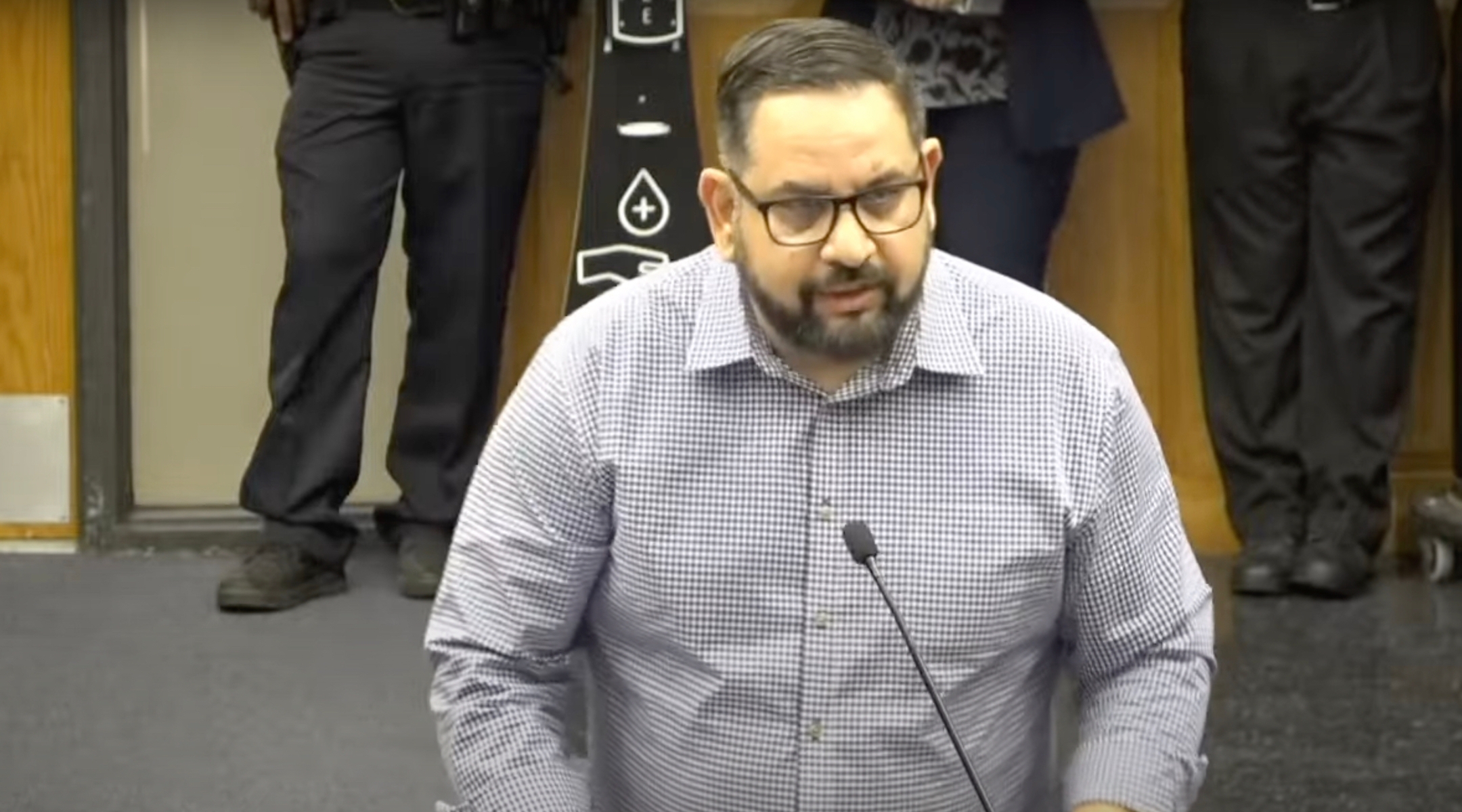The superintendent of a school district in the Rio Grande Valley of Texas recently agreed within minutes to a conservative group’s demands to remove 676 books, including some seminal texts about the Holocaust and antisemitism.
Now, weeks later, Carol Perez has been removed from the district she led, just as the Republican governor of Texas appeared to endorse the book removals on social media.
Conservative activists, led by a local pastor and outspoken Israel advocate, pushed the district, Mission CISD, to excise books mostly about gender, sexuality and race. Their demands represented an extreme version of a nationwide culture war over books that has played out in recent years — and ensnared a number of books with Jewish themes.
In Mission, the long list of books on the chopping block includes a recent illustrated adaptation of Anne Frank’s diary; both volumes of Art Spiegelman’s Holocaust graphic memoir “Maus”; “The Fixer,” Bernard Malamud’s novel about a historical instance of antisemitic blood libel; and “Kasher in the Rye,” a ribald memoir by Jewish comedian Moshe Kasher.
The conservative groups are led by Pastor Luis Cabrera, who is active in Latino conservative circles in the state and whose Instagram profile picture is currently an upraised fist outlined with the Israeli flag. Originally from Guatemala, Cabrera is a member of several right-wing Christian activist organizations and has also posted numerous pieces of pro-Israel social media content.
Cabrera’s groups, the local chapters of Citizens Defending Freedom and the Remnant Alliance, have meanwhile advocated for the removal of books about the Holocaust and antisemitism, lumping them together with books containing sexual content.
In emails posted online, activist Martha Garza-Johnson wrote to Perez on May 17 to ask her to remove a list of 676 books the group deems “very sexually explicit” and “filthy and evil,” copying Cabrera and other local right-wing leaders on the message. The groups also threatened to attend public school board meetings and read graphic passages from the books out loud if their demands were not met, a tactic that activists have used around the country.
“We are here to work with you,” Garza-Johnson wrote. “We are advocating for our children because we want to protect them from these extremely vulgar and offensive books that have no business in our schools.”
Typically, a school district would require book challengers to go through a formal challenge process in which each individual book would be assessed for merit. Instead, five minutes after receiving the demands, Perez agreed to them.
“We will certainly check to see if we have those books to remove them,” she wrote. “Thank you!” The district’s deputy superintendent then followed up to say she would “begin working with Library Services to track the books on the system and have them removed from the libraries.”

Pastor Luis Cabrera advocates for book removals at a school board meeting in Brownsville, Texas, May 7, 2024. Cabrera’s groups have pushed local schools to remove “Maus,” an adaptation of Anne Frank’s diary and “The Fixer.” (Screenshot via YouTube)
Requests for comment to Cabrera and Garza-Johnson were not returned. A representative for the school district said it was preparing a response to a list of questions from JTA but did not respond by press time; it is unknown if the district followed through on removing the books.
Perez was placed on administrative leave by the school board 10 days later before formally separating from the district last week. The dispute appears to have been over the terms of her contract and is not connected to the books, according to local reports.
The same activists have targeted other schools in the region with the same list of books demanding to be pulled, going so far as to threaten lawsuits over them. So far only Mission appears to have agreed to remove the Jewish books. Last week, the campaign picked up more attention when Gov. Greg Abbott appeared to endorse its actions in a post on the social network X.
“If a book cannot be read out loud at a school board meeting in Texas then there is no reason for Texas children in school to be able to read it,” Abbott wrote, sharing a video of one of the activists reading a passage from a book they objected to at a different school board meeting. Abbott added, “School Districts cannot have it both ways.”
The list of offending books was sourced from BookLooks, a website founded by a former member of the right-wing activist group Moms For Liberty that “rates” books on their appropriateness on a five-point scale. Book-removal advocates frequently source their list of book challenges from BookLooks.

Art Spiegelman, author of “Maus,” poses in Paris, March 20, 2012. (Bertrand Langlois/AFP via Getty Images)
Cabrera’s challenge goes further than most: his group demanded Mission immediately remove any book that scored a “2” or higher from the site, even though the site’s own administrator has told JTA she believes her “2” rating is appropriate for middle and high school students. (“Anne Frank’s Diary” and “Maus” both rate a “2” on BookLooks, with the site’s objections to the latter described as “hate involving antisemitism and racism; violence; nonsexual nudity; and mild/infrequent profanity.” “The Fixer” and “Kasher in the Rye” both rate a “3.”)
The Jewish books on the list have been the subject of past controversies over whether middle and high school students should be able to access them. Districts in Florida and Texas have banned “Anne Frank’s Diary: The Graphic Adaptation” or punished an instructor who read from it. “Maus” briefly became the public face of book bans after a Tennessee district removed it from the middle school curriculum, and has also been targeted in districts in Missouri. “The Fixer” was briefly pulled from a South Carolina district as part of another BookLooks-informed mass purge before a committee voted to reinstate it.
Nationwide, culture war-fueled book removals continue to be a major driver of state legislation and local elections. In Iowa, which recently passed a Holocaust education mandate, a recent investigation by the Des Moines Register found that districts have removed Holocaust-themed material including “Maus,” “Sophie’s Choice,” the 1973 young-adult novel “Summer of my German Soldier,” by Jewish author Bette Greene, and a DVD of “Schindler’s List” following lobbying by activists. Some of these items were later returned to shelves.
JTA has documented Jewish history in real-time for over a century. Keep our journalism strong by joining us in supporting independent, award-winning reporting.






